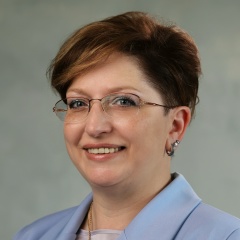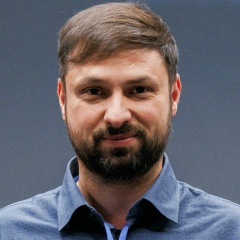Приходите в пятницу, 3 июня, в 15.30 на открытую лекцию профессора Университета Индианы Уильяма Бьянко (William Bianco), посвященную президентским выборам в США. Место проведения: НИУ ВШЭ - Санкт-Петербург, Промышленная улица, дом 17, аудитория 412.
The 2016 US Presidential Elections: What Does Political Science Have To Say?
At first glance, the 2016 election cycle is a humbling experience for
American political scientists. A year ago, it was hard to find an
elections scholar who thought Hillary Clinton would have trouble
winning the Democratic presidential nomination – or that Donald
Trump would be the Republican nominee. This outcome raises two
critical questions. First, how should political scientists revise their
theories of the presidential nomination process? Second, what
happens next – from Trump’s chances against Clinton to the
prospects of a realignment of parties and voters?
The 2016 US Presidential Elections: What Does Political Science Have To Say?
At first glance, the 2016 election cycle is a humbling experience for
American political scientists. A year ago, it was hard to find an
elections scholar who thought Hillary Clinton would have trouble
winning the Democratic presidential nomination – or that Donald
Trump would be the Republican nominee. This outcome raises two
critical questions. First, how should political scientists revise their
theories of the presidential nomination process? Second, what
happens next – from Trump’s chances against Clinton to the
prospects of a realignment of parties and voters?
Приходите в пятницу, 3 июня, в 15.30 на открытую лекцию профессора Университета Индианы Уильяма Бьянко (William Bianco), посвященную президентским выборам в США. Место проведения: НИУ ВШЭ - Санкт-Петербург, Промышленная улица, дом 17, аудитория 412.
The 2016 US Presidential Elections: What Does Political Science Have To Say?
At first glance, the 2016 election cycle is a humbling experience for
American political scientists. A year ago, it was hard to find an
elections scholar who thought Hillary Clinton would have trouble
winning the Democratic presidential nomination – or that Donald
Trump would be the Republican nominee. This outcome raises two
critical questions. First, how should political scientists revise their
theories of the presidential nomination process? Second, what
happens next – from Trump’s chances against Clinton to the
prospects of a realignment of parties and voters?
The 2016 US Presidential Elections: What Does Political Science Have To Say?
At first glance, the 2016 election cycle is a humbling experience for
American political scientists. A year ago, it was hard to find an
elections scholar who thought Hillary Clinton would have trouble
winning the Democratic presidential nomination – or that Donald
Trump would be the Republican nominee. This outcome raises two
critical questions. First, how should political scientists revise their
theories of the presidential nomination process? Second, what
happens next – from Trump’s chances against Clinton to the
prospects of a realignment of parties and voters?
У записи 6 лайков,
0 репостов.
0 репостов.
Эту запись оставил(а) на своей стене Алёна Вандышева












![Стас Однолетков -=[strast]=- Стас Однолетков -=[strast]=-](https://sun9-50.vkuserphoto.ru/s/v1/ig2/BQKIUfD3kthNCNNY9BS69xiPt_GjwVRhAU8D64L6gfeFjcmrTqYrLAC9NKgCppVxwhm79Mi5RypIHhjSHOhQK2uy.jpg?quality=95&crop=347,544,400,400&as=32x32,48x48,72x72,108x108,160x160,240x240,360x360&ava=1&cs=200x200)














